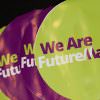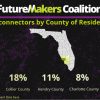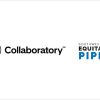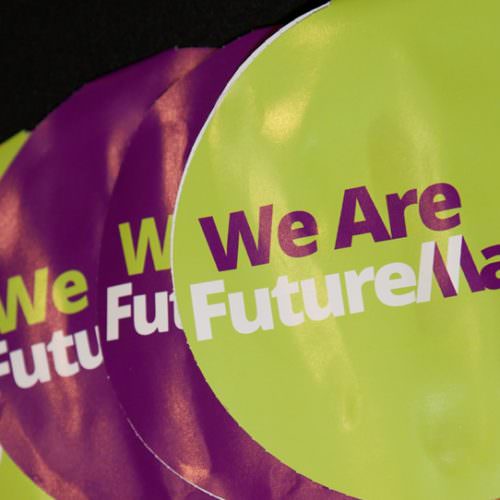While many Southwest Florida students are counting down the days until the final school bell signals summer vacation, others will be kick starting their college careers or increasing their class load. Innovative new programs offered by local colleges and universities are motivating students to learn all summer with the promise of fast-tracking graduation and reducing the cost of a post-secondary education.
From tuition rebates and internships to unlimited online coursework at a single fee, Florida Gulf Coast University, Florida SouthWestern State College, Hodges University, Rasmussen College, ITT Technical Institute and Keiser University – all partners of the FutureMakers Coalition – are providing new learning opportunities for modern-day students.
Supporting and motivating college students and offering alternatives like all online coursework and the opportunity to test drive careers through paid on-the-job learning align with the FutureMakers Coalition’s goal of increasing the number of Southwest Florida residents with college degrees, certificates and other high-quality credentials.
FGCU even exceeded Gov. Rick Scott’s initiative to offer tuition rebates to students who graduate in four years and land a job within a year. Instead of offering the cash back to students who complete classes in the top two degrees, FGCU has extended the perk to all four-year students who graduate in any of its degree programs.
Because of UPower offered by Hodges, former Florida resident Tammy Llorens earned a bachelor’s degree in cybersecurity and forensics, accepted a job in Nebraska and expects to complete her master’s degree by March 2017.
“I was looking for a program completely online to fill in the gaps; I’d been out of the workforce for so long and technology changes,” she said. “There were other schools that offered similar degrees but Hodges gave me the most bang for my buck. Because the program is competency based, I could go through the program using my knowledge and experience and bypass modules I was already proficient in.”
Unveiled in fall 2014, students enrolled in UPower pay $2,500 for six months of unlimited online bachelor’s degree classes and $3,000 for Hodges’ three self-paced master’s programs.
“Higher education has changed so much since that classic image of freshmen walking into the ivied-covered halls of a bricks-and-mortar university,” said Sarah Owen, president and CEO of the Southwest Florida Community Foundation, which is the anchor organization for FutureMakers. “We applaud the insight of our local partners in adapting to the new generation of college student, whether they’re traditional students or adult students balancing career, family and school.”
Find Your Fit: Innovative programs helping students succeed sync with FutureMakers’ goal of motivating and supporting Southwest Florida residents to graduate. Here are some of the programs offered:
Rasmussen College’s recently introduced Flex Choice is also designed for students to learn their way. Students enrolled in faculty-led courses – from business to nursing – have the option to sign up for select online self-paced classes at no extra cost. The college promotes Flex Choice as a benefit for more ambitious students; those who complete the maximum number of online courses can whittle up to six months off of degree requirements and save money. It’s also ideal for nontraditional students whose college time is limited to weekends and after-work hours.
Keiser University Fort Myers campus President Nancy Tedros said the school’s one-course-at-time approach accelerates earned credits and graduation. Four-week classes allow students – and professors – to concentrate on one topic at a time and complete the equivalent of three traditional college semesters in a year.
“Instead of taking four classes simultaneously, they have only one mid-term and one final,” she said. “The model has worked very well.”
It’s a more personalized mode of learning with small classes that aid in “persistence, retention and graduation,” Tedros said.
The typical Keiser student is 26 and working and benefits from blended delivery – a combination of classroom and online work. The university offers career-specific associate, bachelor’s and master’s programs based on the needs of the local workforce.
“Before we introduce a new program we determine the feasibility: Is it a career students will be interested in and is there a need for this skill?” Tedros said.
General education requirements – writing and math, for example – are also career focused and applicable to the work-ready environment, said Pam Johnson, academic dean of education.
“Students are not just writing about Thoreau, they’re writing about careers and becoming engaged in their writing,” Johnson said. “One thing Keiser does well is career planning and placement and focusing on academic support services.”
Hodges introduced UPower in September 2014 and boasted a springtime enrollment of 225 undergraduate and graduate students throughout the country.
“It’s the same coursework we offer in the classroom but self-paced,” said Tracey Lanham, program chair of computer information technology. “UPower removes due dates and focuses on skill sets and mastery of content. Students can move quickly if they’re savvy in skills and have experience in the topic. Some students blow through the courses; some work slower so they can dive deep into a subject and get up to speed. It can be extremely affordable.”
The average age of UPower students is 32 and many are returning to school to change careers or advance in their jobs, Lanham said.
Llorens learned about UPower through Complete Florida, an online resource that guides students through career choices, connects them to partner universities, scholarships and financial aid.
“I’ve always worked in technology and had an associate degree,” Llorens said. “I worked as a contractor for the military for 12 years and raised a family and earning a bachelor’s was never quite there for me the older I got. I earned my bachelor’s in half the time it would have taken had I followed the traditional route. The job I got in Nebraska was directly related to receiving my bachelor’s degree. I never would have thought I’d be able to complete a master’s program.”
UPower currently offers two associate degrees, five bachelor’s and three master’s level degrees, all but one – a master’s in public administration – geared to technology systems and digital design.
New programs will be introduced this fall, including paralegal and business degrees, Lanham said.
“Having a master’s will help me advance in my career,” said Llorens who plans to journey to Florida next spring to attend her graduation ceremony. “It’s the first thing employers are going to look for.”
For added success, UPower links each online student with a faculty advisor.
“What’s beautiful about this program is students in every course have a mentor,” said Lanham who is Llorens’ advisor. “They have the same access and benefits as they would attending classes on campus. We can give them that extra help and extra push.”
FGCU has introduced a number of new programs designed to help students find their career fit, gain real-life experience and graduate within four years. Its Internships & Co-operative (Co-op 6) program was launched in July 2015 based on research demonstrating students who intern are more likely to graduate, said director Stacy Ballinger.
The university partners with local businesses to place students in the workforce.
“We have a lot of employers who want to get involved,” Ballinger said. “We’re educating them on how to start an internship program.”
The programs expose the new generation of students – who Ballinger describes as inquisitive and have a need for experience – to potential careers. Through internships and co-op participation they see how an English or history degree translates into a variety of work opportunities.
Co-op 6 students take a semester off of school to work in 30- to 40-hour-a-week paid jobs. It’s full immersion in the workplace for six months for students who have completed 60 credit hours and maintained a 3.5 GPA. The program’s inaugural 25 students started in January.
FGCU plans to double the number of students precipitating in the summer Co-op 6 placement. Ballinger said 185 students have applied.
In April, the university surpassed Gov. Rick Scott’s Governor’s Challenge Rebate by approving a freshman tuition rebate – as much as $4,200 – to students who declare a major, complete bachelor degree requirements within four years and are gainfully employed within six months. Under the governor’s plan, students enrolled in the top two degree programs at the state’s 12 schools are required to land a job paying at least $25,000 within a year of graduation. FGCU is offering the cashback program for up to 30 freshmen credit hours to all degrees.
It’s a move that motivates Florida students to get to work. Nationally, 33.5 percent of students graduated from public institutions within four years in 2015, according to the National Center for Education Statistics.
Florida SouthWestern’s four-year-old Cornerstone Experience is a required class for freshmen students, teaching them how to manage money and time, and make them aware of available resources to help them succeed, including tutoring assistance and professors’ open-door policies.
“It teaches them how to be a college student,” said Teresa Morgenstern, director of communications.
Although the college hasn’t assessed the impact of the program, now in its fourth year, Morgenstern said graduation rates have gone up.
There’s also a system in place for professors who notice students are lagging behind or not attending classes.
“We let our students know we’re here to help them and empower them through graduation,” said Morgenstern.
Florida SouthWestern also offers study-abroad and undergraduate research opportunities and is among the top schools in the state for job placement and wages, she said.
About the FutureMakers Coalition
Formed in 2015 around existing regional collaborations, the FutureMakers Coalition’s goal is to transform the workforce by increasing the number of college degrees, post-secondary certifications and high-quality credentials from 27 percent to 40 percent by 2025 throughout Charlotte, Collier, Glades, Hendry and Lee counties. The coalition is committed to creating a cradle-to-career pathway to ensure success for traditional students and adult learners.
The FutureMakers Coalition is one of Lumina Foundation’s 75 national Community Partners in Attainment. Residents are encouraged to join and support this community-changing initiative. For more information, visit www.FutureMakersCoalition.com, call 239-274-5900 or email Tessa Lesage at [email protected].





























